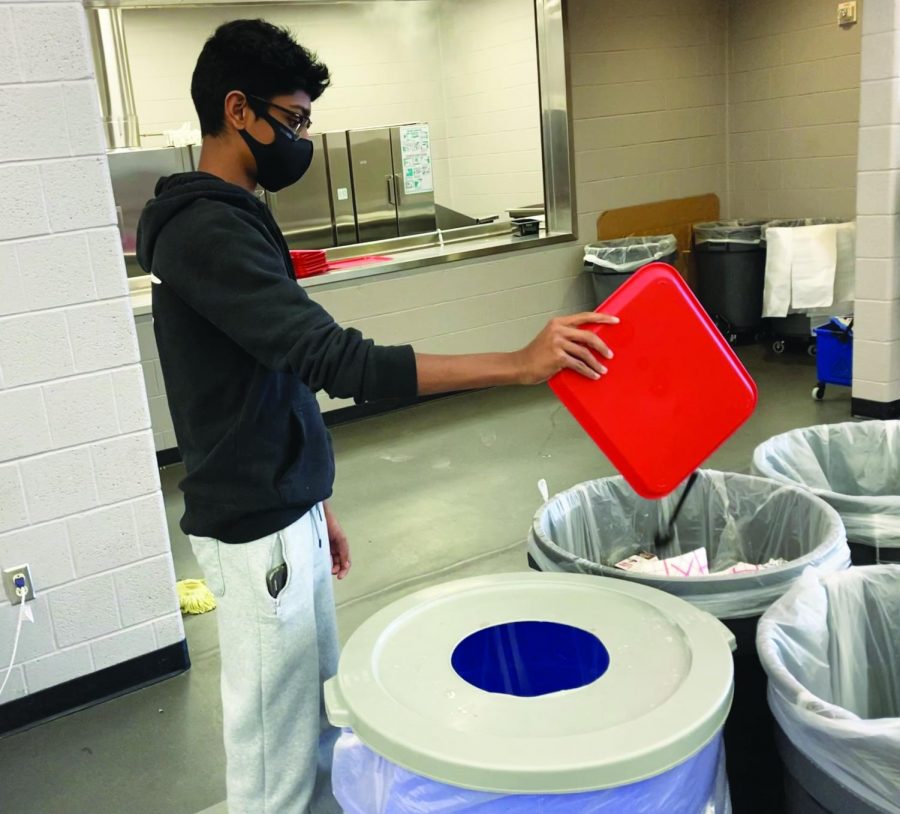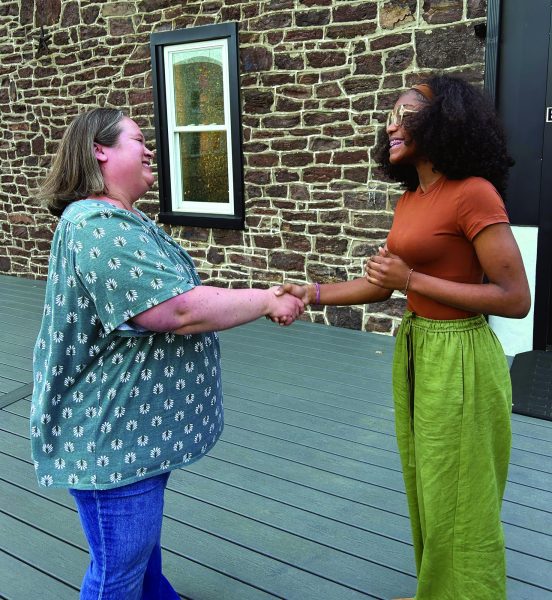COVID-19 caused waste problems plague area
Online shopping increases due to the pandemic has increased the amount of waste and plastics being produced.
Arrowhead photo by Jacob Godshall
Cleaning up…After finishing lunch in the cafeteria on October 6, freshman Abel Mathew disposes his trash. The high school encourages students to responsibly dispose of trash.
Online shopping has greatly increased waste and recyclables due to the COVID-19 pandemic, and all over the world people have increased the amount of online shopping they do, leading to waste problems.
The COVID-19 pandemic has had an impact on almost every aspect of the community and the overall life of most of its members.
However the responses to this global phenomenon have had another, possibly less visible effect on the local area; excess trash and plastic.
According to J.P Mascaro & Sons general counsel William Fox, the pandemic has had increased waste volume, especially for municipalities such as schools. “The waste has probably increased 25 to 30%,” Fox said.
Fox also said that the waste levels were much higher than the company had expected and that recycling numbers were also “up tremendously.”
According to Fox, many factors play into the waste increase but a huge part of it was the “at-home economy.”
Many have started working at home because of the pandemic, causing an increase in waste due to more people being at home for extended periods.
Fox also said this caused “loads and loads” of packaging to be produced such as cardboard and plastics.
Currently, Mascaro’s facilities are operating at “near 100%,” in order to deal with the influx.
Freshmen Selah Fink and David Hoover have also participated in more online shopping with their families due to the pandemic. “We recycle the recyclable materials and we don’t really reuse very much,” Fink said.
Hoover gave a very similar answer saying that, although he doesn’t think the waste increased too much in his household, he does recycle what he can and “tosses the rest.”
According to science teacher Ian Burley, the way to conserve the environment is through simply reusing things like plastic water bottles and canvas bags.
When reusing something like a water bottle, it saves the earth natural resources like oil and reduces the production of plastic.
According to Burley students can be creative in the way they reuse, such as using an old t-shirt as a rag or an old toothbrush as a way to clean car vents. He says this is “extending the life cycle” of that object.
According to Burley, it is the responsibility of the human race to find a way to exist peacefully alongside the natural world so that future generations can enjoy the “convenient lifestyle” we have today.
However, some good has come out of this year in the waste management spectrum. J.P. Mascaro & Sons has been given a $3 million grant to attempt to start recycling the material that makes up snack and grocery bags.
“We were the first company in the country chosen to set up a part of our automated resist of Total Recycle, an automated recycling line that recycles this plastic flexible packaging,” Fox said.






